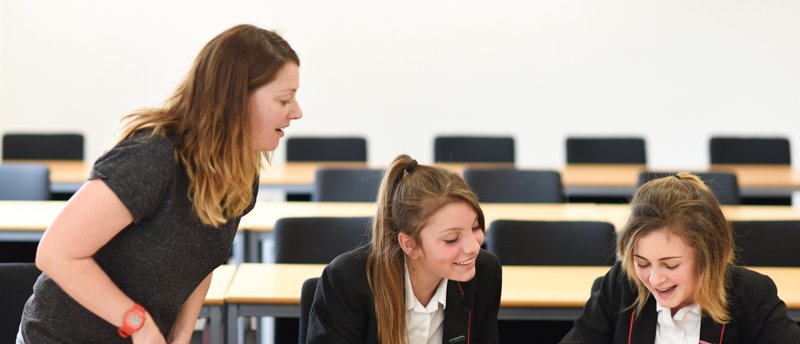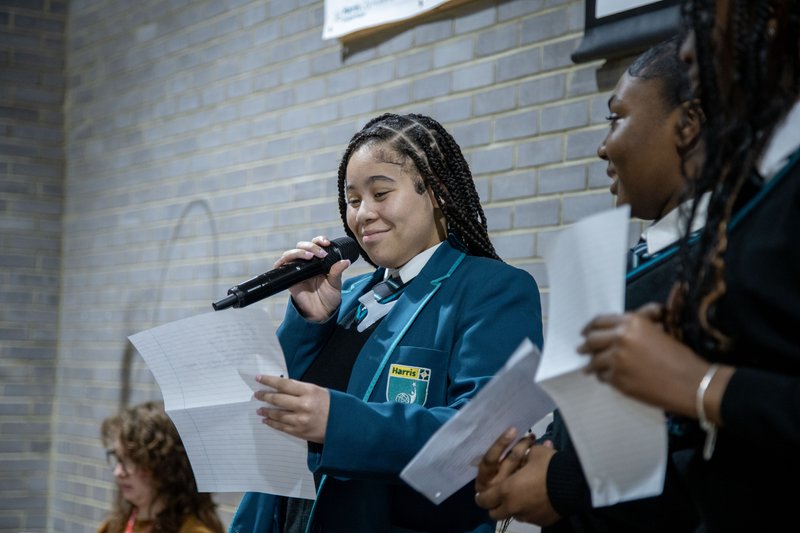Words for Work: Women in Leadership

Words for Work: Women in Leadership helps young women and non-binary students to develop the literacy skills, leadership abilities and confidence they need to achieve their potential.
About the programme
Our Words for Work: Women in Leadership programme, in partnership with Lancôme, aims to challenge inequalities in employment opportunities for young women and non-binary students in post-16 education.
We deliver a series of workshops to promote workplace literacy, including teacher-led lessons in schools, a day with Lancôme and a panel event with inspiring women across a diverse range of careers.
"It made me feel like I could accomplish anything and made me excited for the future."
Words for Work: Women in Leadership student
Current opportunities
Schools/colleges: Our 2024/25 Women in Leadership Programme is full. However, you can register interest now to hear about our 2025/2026 programme.
Panellists: we're always happy to be contacted by those willing to talk about their own experiences and career journey to inspire young people. Please get in touch to learn more.
International Women's Day 2025: if you are looking for ways to celebrate in the weeks before or after International Women's Day (Saturday 8 March), then check out our resources.
Get involved
To sign up or to receive more information about our programmes, please:
- complete our expression of interest form, or
- email the Words for Work team at wfw@literacytrust.org.uk

Impact
Recent evaluation has shown that after taking part in Words for Work: Women in Leadership:
-
97% of participants know how to communicate in the workplace and give a speech
-
96% of participants feel more prepared to enter employment
-
80% of participants have a better understanding of what may be expected of them in a job interview
-
100% of teachers said the programme raised students’ aspirations
Need
Young people who leave school with poor literacy skills are more likely to be unemployed as adults. Research shows that this negative impact is twice as large for women than for men. And the inequalities don’t stop there.
-
The negative effect of poor literacy skills on employability is twice as large for women than for men.
-
64% of young women believe they won’t have the same chances to be successful in their future jobs as men.
-
Women in the UK are three times less likely to hold director-level roles than men (26% vs 74%).
-
At every level of education, women need to earn one additional degree in order reach average salaries in line with men’s averages.
Success stories
-
After two years of digital delivery, our Women in Leadership business masterclasses have returned to the classrooms.Learn more about The Women in Leadership masterclass returns to the classrooms.


